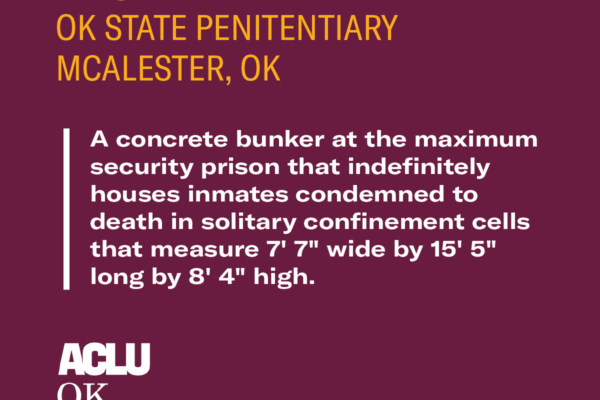As a former capital defense attorney, I visited Oklahoma death row - and death row prisoners - for 25 years. That inside view taught me two things that, at first, surprised me.
First, death row prisoners live in horrible, oppressive conditions. The concrete facility is surrounded by banked earth - essentially underground. The cells, where the men are locked down 23 or more hours per day, have no windows to the outside. The exercise “yard” is a concrete windowless room perhaps the size of a small garage. It has a skylight covered by a grate. The men never see a bird, a tree, even grass. To get to the “yard” - inside the concrete facility where they are confined - the men have to first stick their arms and legs through the “bean hole” to be shackled. The “bean hole” is intended to slide in food trays - not for this contortion-like maneuver. Many find it so difficult they rarely go even to the mis-named “yard.” The men also have to go through this shackling regime for family and attorney visits. Aside from these visits, which, with family, are through glass, the men have little to no contact with other humans, including each other. They used to have group religious services with volunteer pastors presiding, but that was banned in 2009 without reason. They are left isolated and without fellowship or human connection.
Second, the men are not horrible people. Not now. Yes, they were convicted of horrible crimes. But they were not dangerous to me. They are generally the best-behaved people in prison - a fact known to administrators. I never had one problem in all the contact visitation I had. Instead, there is a lot of humanity on death row.
My first client is an example. He had become like a preacher. He married a Christian minister. When he was executed, he wasn’t worried about himself. He was worried about me - counseling me to buck up, not to feel bad. He was special, but most all the men are decent and thoughtful people. Some of them are most interesting characters, too. If you met them, you might think of them as like your nephew, your brother, or your cousin. True enough, there are many who face cognitive challenges - in one way or another - on death row, intellectually impaired, a few reality impaired, but mostly in an out-of-it kind of way. Depression, as you might guess, is pretty common. You would be surprised at first how human these men are. But then you would learn that’s how it is. That was my experience and I’m sure it would be yours too if you had the opportunity.
One pastor who has visited on death row put it this way - these men are not the worst thing they ever did - they are beloved children of God.


